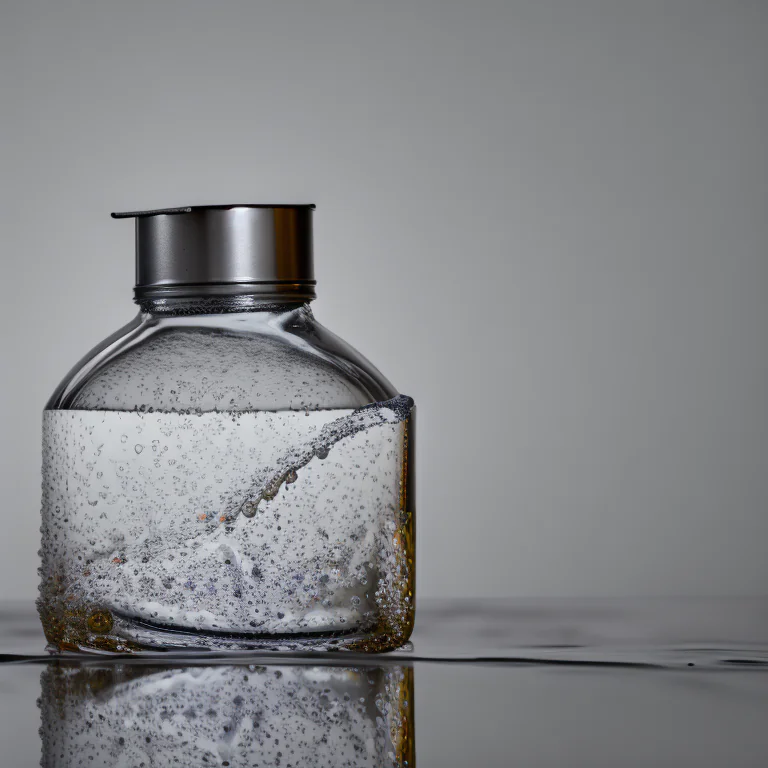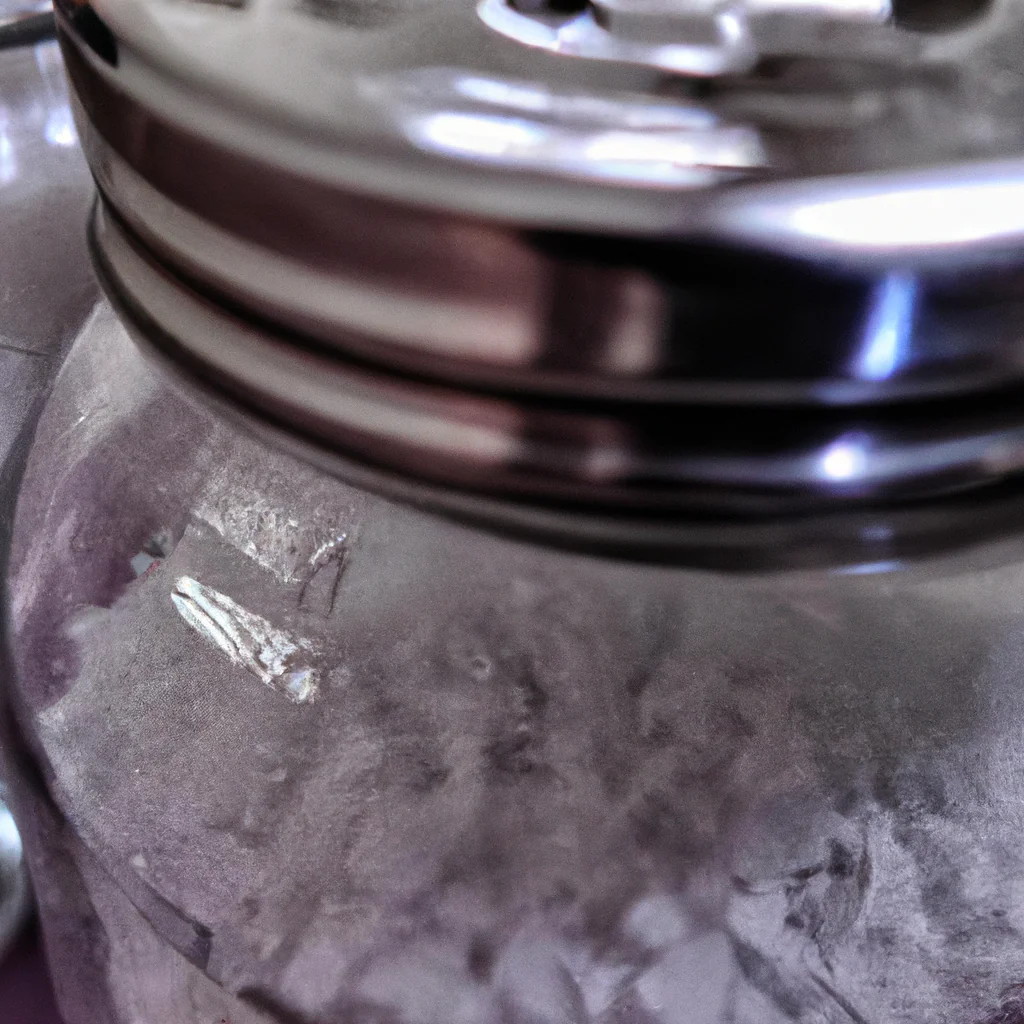We’ve all heard the old saying that adding salt to water will keep it from freezing, but is that really true? Does adding salt to water really keep it from freezing? Read on to find out! We’ll explore what temperature salt water freezes at, the science behind why salt lowers the freezing point of water, and how much salt it takes to keep a gallon of water from freezing.
So whether you’re trying to unfreeze pipes, or just keep your ice cream stored in the freezer longer,let’s find out if adding salt to water can really keep it from freezing.
Table of Contents
What temperature does salt water freeze?
Salt water freezes at a lower temperature than freshwater. This is because salt lowers the freezing point of water. When the salt concentration is high, it requires more heat to raise the temperature of the water, and thus the freezing point is lower.
The salinity, or salt content, of seawater typically ranges from 33 to 37 parts per thousand. This means that the seawater is about 3.3% to 3.7% salt. The average freezing point of seawater with a salinity of 35 parts per thousand is -1.8°C. However, the freezing point of seawater can vary depending on its salinity.
One way to think about this is that salt water has a higher freezing point than freshwater because there are more molecules in it. The more molecules present, the more energy required to increase the temperature.
In general, salt water freezes at a lower temperature than fresh water because the salt decreases the freezing point of water. When salt is added to water, it decreases the amount of heat required to raise the temperature of the water, and thus lowers the freezing point.
Celsius Scale Matters: What Temperature Does Salt Water Freeze At?
While the freezing point of freshwater is 0° C, the salt in seawater lowers its freezing point. Typically, seawater with 35 parts per thousand (3.5%) salinity will have a freezing point around -1.8° C.
The salt content of seawater varies depending on location. For example, near the poles, where there is less evaporation, the seawater has a lower salt content and freezes at a higher temperature than at the equator.
The amount of salt in seawater also affects how quickly it freezes. More pure water will freeze faster than salt water because the salt lowers the water’s freezing point.
Salt water also freezes at a different temperature than fresh water. This is because salt decreases the amount of heat needed to freeze water. So, while freshwater freezes at 0° C, saltwater needs to be colder to freeze.
- The freezing point of freshwater is 0° C
- The freezing point of seawater is -1.8° C
- Saltwater freezes at a different temperature than fresh water
Salt’s the Key: Can it Prevent Water from Freezing?
Salt molecules block water molecules from packing together when temperature is lowered. It then prevents them from becoming ice. More water molecules leave the solid phase than the ones entering the solid phase. Freezing point depression occurs when the freezing point of the liquid is lowered by addition of solute.
The addition of solute decreases the vapor pressure of the solution. When the vapor pressure of the solution is lower than that of pure water, ice will not form. The soluterepels the water molecules, which decreases the attraction between molecules, and makes it harder for them to pack together into a crystalline structure.
The most common salt used for this purpose is sodium chloride, or table salt. Other salts can also be used, such as calcium chloride, magnesium chloride, and potassium chloride. All of these salts work in a similar way to prevent water from freezing.
To make a salt solution, you must add salt to the water and stir until it is completely dissolved. The amount of salt you add will depend on the temperature at which you want the water to freeze. For example, if you want the water to freeze at -10°C, you would need to add about 8 grams of salt per liter of water.
Once you have made your salt solution, you can pour it into an ice tray or container and place it in the freezer. The salt will prevent the water from freezing, and you will end up with a tray of slushy ice.

Salt Solution: How Much Do You Need to Keep a Gallon of Water from Freezing?
A half-pound of rock salt per gallon of water will keep tanks from freezing down to 26⁰ F. The more salt you add, the better your freeze protection will be until you get to the eutectic point – that’s the point at which adding more won’t help because the salt won’t stay in solution.
For most applications, this amount of salt will be more than enough to prevent freezing. However, if you’re in a particularly cold climate or have concerns about your tank freezing, you can add more salt per gallon of water.
The eutectic point is the temperature at which adding more salt won’t help because the salt won’t stay in solution.
In general, the eutectic point for saltwater is around -6°F (-21°C). This means that if you’re using salt to prevent your water tank from freezing, and the outside temperature drops below -6°F, adding more salt isn’t going to help.
Of course, this is just a general guideline – different types of salt have different eutectic points, and the eutectic point can also be affected by impurities in the water.
If you’re worried about your water tank freezing, it’s best to consult with a professional to find out how much salt you need to add.
Slower Thaw?: Does Salt Water Defrost Slower?
The difference between the air temperature and the freezing point of salt water is bigger than the difference between the air temperature and the freezing point of freshwater. This makes the ice with salt on it melt faster.
Salt water freezes at a lower temperature than the 32 degrees F at which freshwater freezes. The difference between the air temperature and the freezing point of salt water is bigger than the difference between the air temperature and the freezing point of freshwater. This makes the ice with salt on it melt faster.
When you add salt to ice, the ice melts faster. Salt lowers the melting point of water, so adding salt to ice creates a slushy mixture of partially melted ice and salty water. The salty water has a lower freezing point than pure water, so it can keep the ice from completely freezing.
It may seem like the opposite should happen — that adding salt would make ice colder and help it last longer. But actually, salt works to speed up the melting process. That’s because salt dissolves into water molecules and spreads them out, preventing them from bonding together and forming ice crystals.
The more salt in the solution, the lower the freezing point will be. That’s why rock salt is used to melt ice on roads — it can lower the freezing point all the way down to -20° F/-28.9° C. That’s cold enough to turn most ice into a slushy mixture, even in very cold weather.
Unfreeze Pipes Anywhere with Salt Water
Any water can freezes, including salt water. The freezing point of salt water is lower than that of fresh water, so it can help to unfreeze pipes. Just pour a tablespoon (15 mL) of salt down the drain, and give it time to act on the ice.
How does salt water unfreeze pipes?
Salt lowers the melting point of ice, causing it to melt at colder temperatures. The salt will cause the ice to melt, and the water will start to flow again.
If you have a pipe that is frozen solid, you can try pouring boiling water over it. The heat will help to thaw the pipe and get the water flowing again.
Can I use table salt?
Yes, you can use table salt. Just make sure that it is pure salt and not mixed with anything else.
What if the pipe is still frozen?
If the pipe is still frozen, you may need to call a plumber. They will be able to thaw the pipe safely and get your water flowing again.




